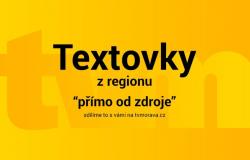According to the United Nations High Commissioner for Refugees, almost ten million people fled their homes before the war. More than three and a half million of them have found refuge in calmer parts of Ukraine, another almost six million seek safety in European countries, including the Czech Republic. Many of them will never return. They have nowhere to go.
To East!
Kyiv
2:12 p.m March 28, 2024
Share on Facebook
Share on LinkedIn
Print
Copy the url address
Abbreviated address
Copy to clipboard
Close
Memorial site at the monastery of St. Michael in Kyiv | Source: Profimedia
Residents of all major Ukrainian cities go to bed every day with the knowledge that they can be woken up by an aircraft alarm at any time in the middle of the night. Every family has its own trauma, whether from long separation or direct war crimes. How long will Ukrainian society process such an experience and will it ever succeed?
Listen to the 13th episode of the Na Východ podcast!
In the 13th episode of the podcast Na Východ! with Josef Pazderka and Ondřej Soukup look beyond the statistics and news from the front and convey the perspective of Ukrainian men and women who are forced to adapt to the stress of war.
“Long separations at the front, fatigue, trauma and mental illness, marriage breakdowns, coping with death. This is something that these people experience every day. 40 million people in Ukraine would need psychological help. Just everyone,” reminds Pazderka.
With Soukup, they show it in the podcast through the stories of their friends from Ukraine and those who fled to Europe. The fresh impressions from the front at Avdijivka, which he has now brought to the listeners of Na Východ, are also sadly telling. well-known photographer Stanislav Krupař.

We have no aggressive intentions towards the Czech Republic, Poland and the Baltics. They want to deceive the population, Putin said
Read the article
President Volodymyr Zelenskyi recently said that about 31,000 Ukrainian soldiers died during the Russian all-out invasion. “Everyone in Ukraine suspects that the number is probably much higher,” points out Pazderka, who visited Kyiv in January.
He also went to see the monastery of St. Michal, where a spontaneous memorial site was created with photographs of war victims.
“When you see the specific names and remember that it started with a few dozen people (after the events at the Euromaidan in 2013-14 – editor’s note), and what kind of tragedy the society is going through today, it really shakes a person. “What a huge price society pays for things that are completely self-evident, such as the fact that it is a sovereign country, that it has borders and that no one can just usurp parts of its territory,” asks Pazderka rhetorically.
Obvious fatigue
Even during the war, sociological surveys are conducted in Ukraine about people’s attitudes (and not only) towards the war. According to Gradus surveys, two years after the start of the war, a clear shift is visible. Previously, Ukrainian men and women were tied to the army and the highest state officials.
In 2024, there is already a clear fatigue from the data and the realization that the goal is not within reach. Many respondents answered that they don’t even really know what a Ukrainian victory should look like.

The Baltics are preparing for war, digging trenches. They compare Putin’s Russia with the USSR there, the reporter reports
Read the article
Support for a diplomatic end to the war, not just a military one, is also gradually increasing. But as sociologists emphasize, Ukrainians want a just peace, not capitulation.
What caught Soukup’s attention in these investigations was the geographical distribution of these views. More people from the western regions are in favor of peace talks than from the east. “Perhaps the people in the Kherson region, due to the fact that they are so close to the front, tend to reject peace and want more to return to the borders of 1991. As utopian as it may sound,” he observes.
A big topic at the moment is the new act on mobilization. On the one hand, he proposes to lower the age of conscription, and on the other hand, he allows the possibility of paying out of military service and sending regular contributions to the army instead of enlisting at the front.
“The law has not yet been approved,” explains Soukup, “and of course it is fueled by various discussions about who is key (for the functioning of Ukrainian society and the economy) and should have a deferral – or rather be exempted from levies.” That will be a big topic. As well as what to do with people who have been on the front line since the very beginning and deserve at least a year’s rest.”
The entire text of the 13th episode of the podcast Na Východ! listen to the audio recording.
Josef Pazderka, Ondřej Soukup
Share on Facebook
Share on LinkedIn
Print
Copy the url address
Abbreviated address
Copy to clipboard
Close








